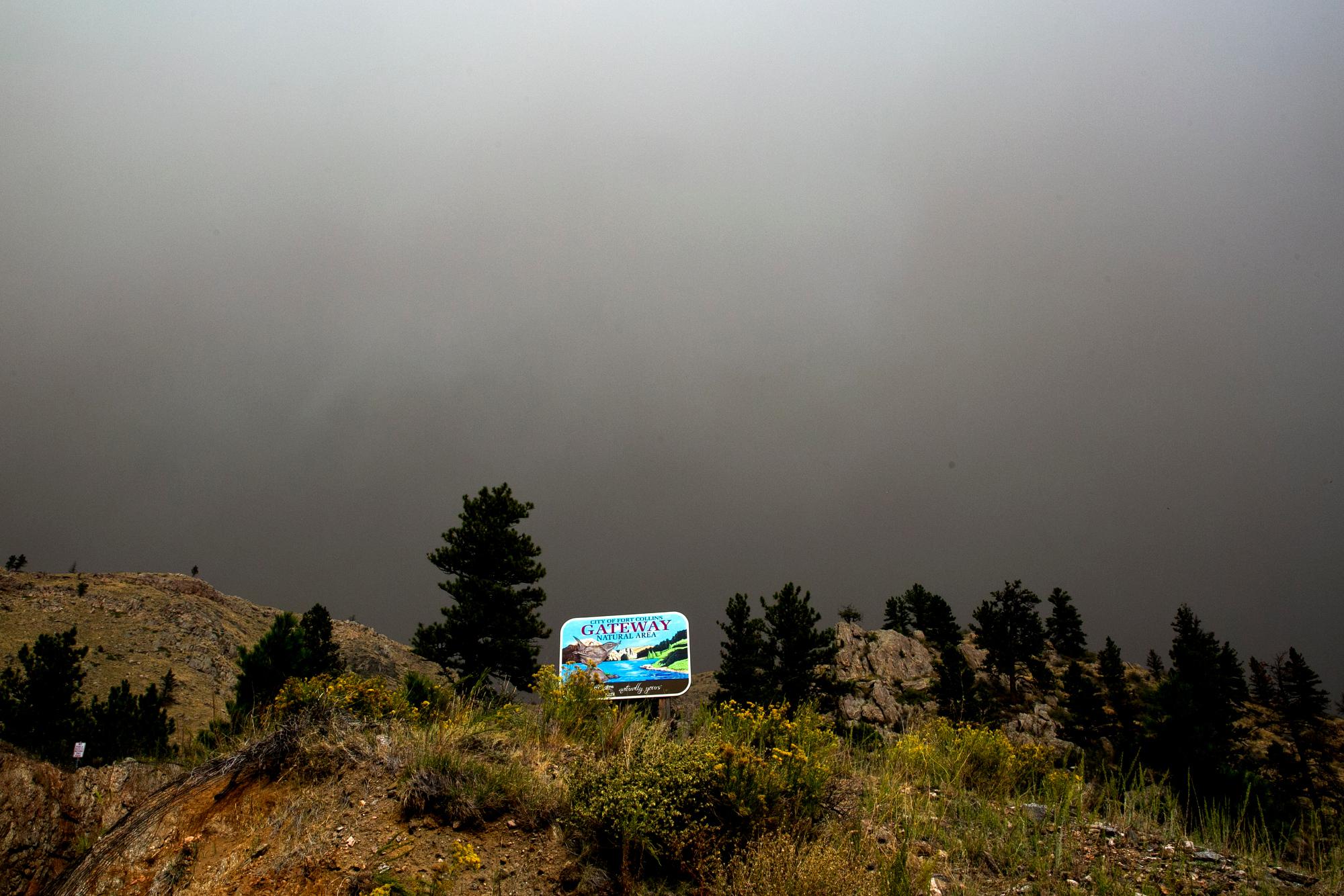
The full brunt of climate change is bearing down on Colorado.
The recent summer brought drought, record-high heat and two of the three biggest fires in state history. According to scientists, it’s likely only a preview. Unless people can rapidly reduce their dependence on greenhouse gas emissions, those effects will only grow worse in Colorado and across the rest of the planet.
In that context, Gov. Jared Polis released a draft of his plan to stem the tide Wednesday. The "roadmap" details potential policies to meet targets in Colorado’s climate action plan, which calls for a 25% reduction in greenhouse gas emissions by 2025 and a 50% reduction by 2030. Those goals are measured against Colorado’s 2005 emissions levels.
“We have taken historic steps towards our goals, and this roadmap will help guide the critical efforts necessary to reap the full benefits of boldly and equitably transitioning to a clean energy economy,” said Polis in a statement.
The report comes nearly 500 days after Polis signed the climate action plan into law. While it offers the clearest picture yet of the administration’s plans, environmental groups and other Colorado Democrats were quick to criticize the roadmap.
“Right now, it’s a PowerPoint presentation,” said Democratic state House Speaker KC Becker, who sponsored the climate action plan in the legislature. “I want to see commitments put into rules so it’s specific, enforceable, targeted — all the things that we need.”
Other environmental activists offered a far harsher assessment. Jeremey Nichols, the climate and energy program director for WildEarth Guardians, said the roadmap amounts to a list of “goal and aspirations.” His organization is currently suing the Polis administration for failing to propose clear rules to meet the climate rules by last July, which lawmakers included as a deadline in a second climate bill passed last year.
“Maps mean nothing without a willingness to drive,” Nichols said. “Without a true commitment to action and a legitimate gameplan for achieving the emissions reductions needed to confront the climate crisis, the draft ‘roadmap’ is just more talk.”
Like other states controlled by Democrats, Colorado hired Energy+Environmental Economics to develop the roadmap. The environmental consulting firm worked with a range of state agencies to complete the analysis.
To begin, the firm assessed Colorado’s contribution to climate change in 2015. The work found four sectors are responsible for the vast majority of Colorado’s emissions: transportation, electricity generation, oil and gas production, and buildings.
The plan contains policy recommendations for each of those sectors, but mostly stops short of demanding rapid shifts from private industries or consumers.
- As Summers Get Smokier, Is It Time For A New Generation Of Air Quality Warnings?
- Tensions Between Gov. Polis And Environmentalists Grow After Legal Move In Colorado Climate Lawsuit
- Colorado Wildfires Are Climate Change ‘In The Here And Now’ — And A Sign Of Summers To Come
- When Colorado’s Air Quality Commission Reconvenes To Talk Climate Change Policy, Some Of Its Most Vocal Advocates Won’t Be There
Transportation, which is now Colorado’s largest source of greenhouse gas emissions, offers one clear example. Last week, California Gov. Gavin Newsom announced his state would ban the sale of gasoline-powered cars by 2035.
Polis’ recommendations take a much softer approach. To meet the 2025 and 2030 goals, the roadmap suggests emissions standards in new state transportation plans, a clean trucking strategy and additional revenue to build electric vehicle charging stations.
Will Toor, who leads the Colorado Energy Office and oversaw the process to develop the roadmap, said it’s no accident many of those recommendations aren’t fully fleshed out.
“We are intentionally laying out the policy direction and leaving room for important stakeholder engagement to decide the details of these programs,” he said.
Other pieces of the roadmap depend on shifting Colorado’s electricity grid to renewables. Xcel Energy, Colorado's largest utility, has already committed to reduce its greenhouse gas emissions 80% by 2030 below 2005 levels. The roadmap recommends more rules to make sure utilities follow through on those sorts of commitments.
As the electricity gets cleaner, the road map recommends new programs to help people use it. One future policy could require utilities to create programs to help people install electric heat pumps, which offers an efficient alternative to natural gas.
Ean Tafoya, an organizer with GreenLatinos, also noted a lack of attention to racial equity in the roadmap. While the report mentions an ongoing process to create a climate equity framework for future climate policies, it doesn’t name any potential policies specifically designed to address inequality or racism.
“It does not prioritize climate action in disproportionately impacted communities and ultimately will only perpetuate environmental injustice in Colorado," he said.
Toor said some of the goals in the roadmap, like a transition to electric semi-trucks, would help improve air quality in marginalized communities living near highways. That said, he said there must be more work to address the unequal impact of climate change.
Not all environmental groups blasted the plan. Conservation Colorado and Western Resource Advocates both praised the intention behind the roadmap in statements, but said it lacks the clarity needed to shift Colorado’s economy away from greenhouse gas emissions.
"Now that Gov. Polis’ roadmap is complete, it’s time for Colorado to quickly pivot to preparing an actionable plan and timetable to adopt specific policies,” said Stacy Tellinghuisen, senior climate policy analyst at Western Resource Advocates. “We are far behind where we need to be in order to prevent the worst impacts of climate change in Colorado.
This is a developing story and will be updated.








